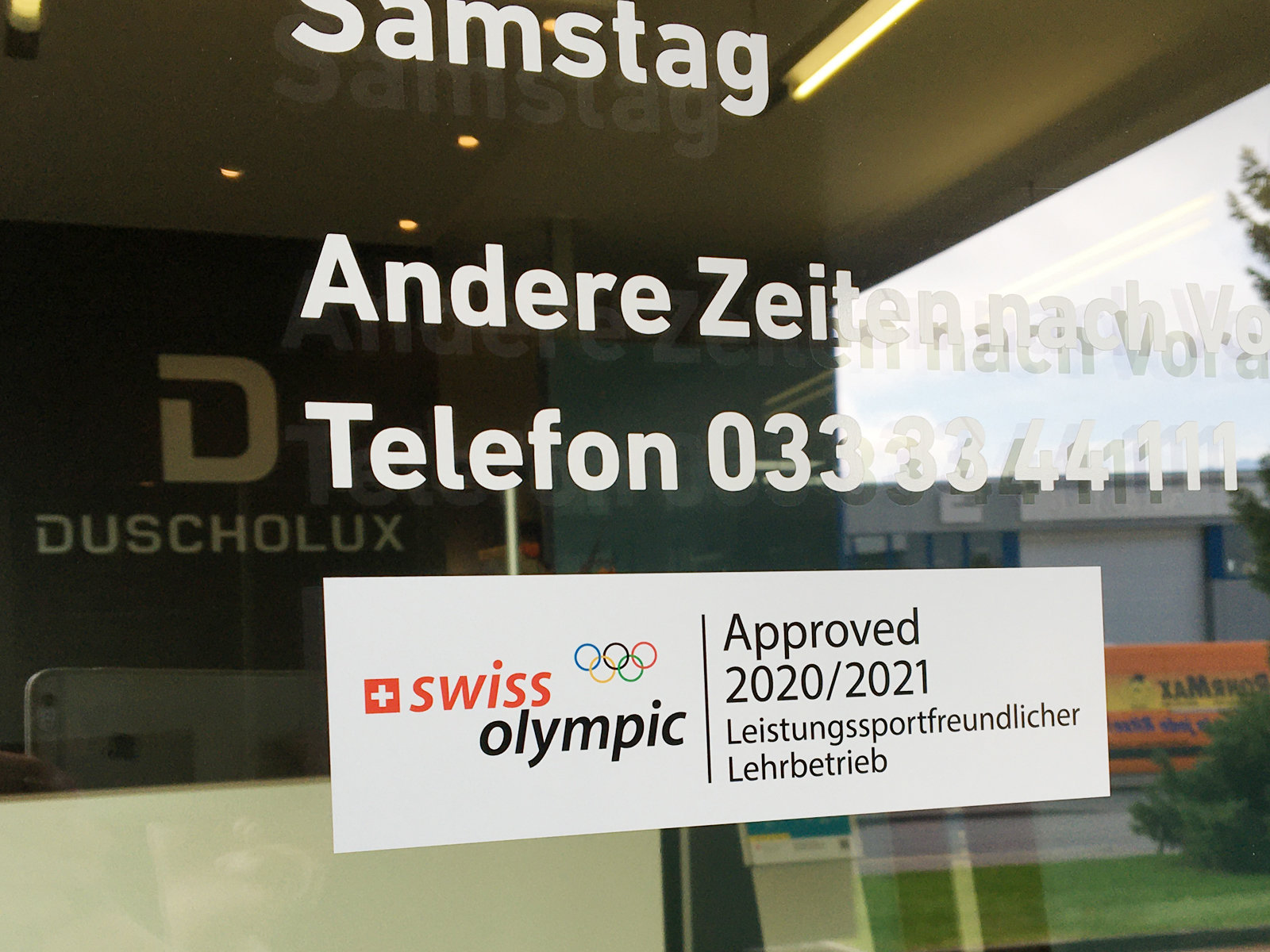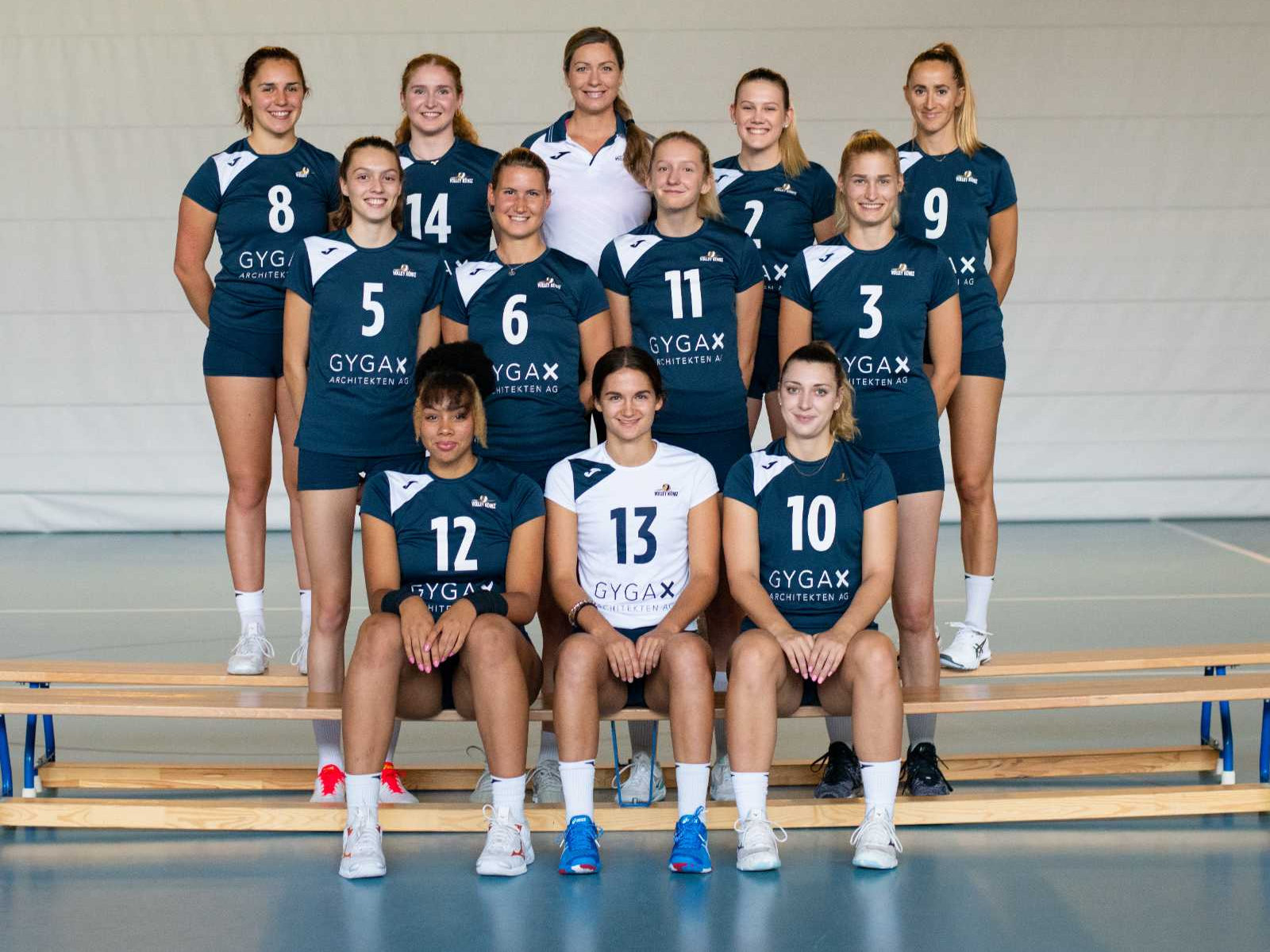Dedication and the ability to put in top performances are important qualities in today's society. In both a business and sporting context. Young sportsmen and women have to balance their work, schooling, training and family and friends as they attempt to get ahead in their vocational training, sporting life and social environment at the same time. Foundations and conditions that are tailored to young people are required if they are going to be able to cope with this major challenge.
Swiss Olympic has launched the label “Leistungssportfreundlicher Lehrbetrieb” (training enterprise conducive to competitive sport) in order to set such teaching facilities apart from the rest. DUSCHOLUX is also able to offer up-and-coming sporting talent this kind of education. Like Nadine Demierre, for example, who plays as a middle blocker for Volley Köniz and as an outside hitter for VBC Thun and is doing a commercial apprenticeship in sport to get her Swiss Certificate of Competence in commerce.















